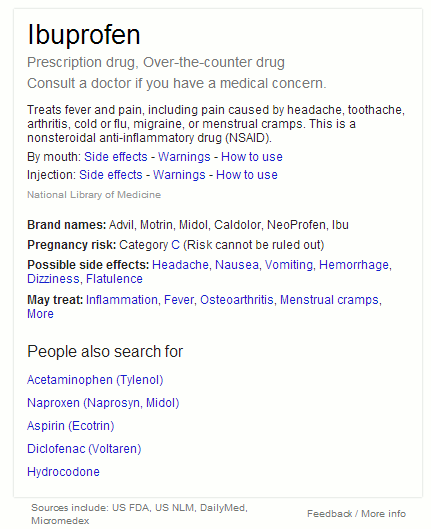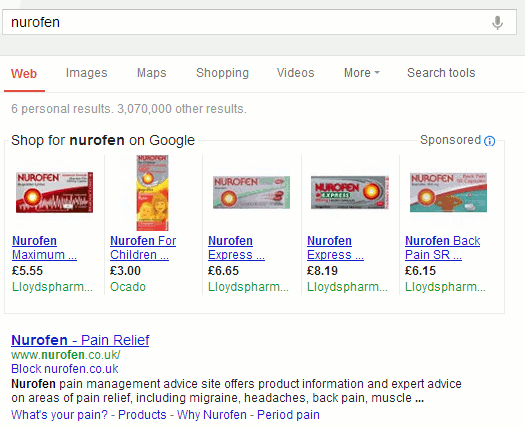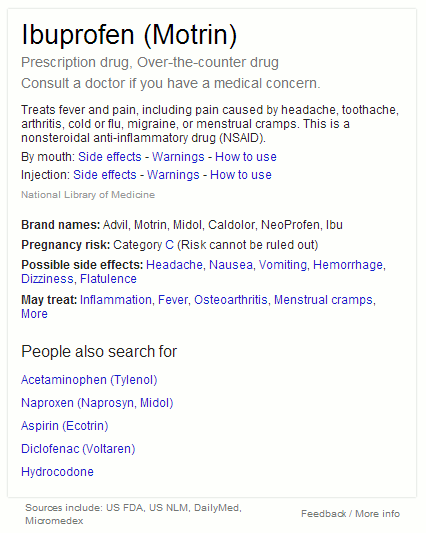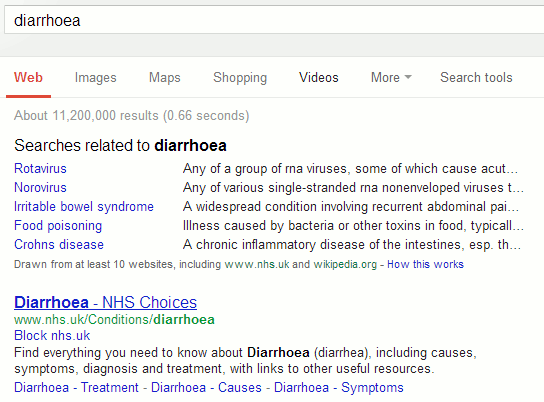In November of last year Google announced that it was going to start showing a knowledge graph for searches on medicines. (Look up medications more quickly and easily on Google, http://insidesearch.blogspot.co.uk/2012/11/look-up-medications-more-quickly-and.html). I am now seeing it in my search results but only on Google.com.
When I search on ibuprofen Google now gives me some key facts on the drug in a box to the right of the standard web results. The information includes indications for use, side effects, brand names, contraindications and other drugs that people also searched for. The sources it uses are the National Library of Medicine, US FDA, DailyMed and and Micromedex.

Ibuprofen is the generic name for this painkiller and is one of the names under which it is sold in the UK and many other countries. Searching on the brand name Nurofen, which is not available in the US, brings up web search results with shopping options at the top. There is no knowledge graph this time.

I played around with a few other brand names and found that if it is on sale in the US, for example Motrin, Google is able to identify the active ingredient.

So Google’s new medicine search is US-centric: US brand names and US sources of information. It will be interesting to see if and how they roll it out to other countries. Meanwhile, for those of in the UK NHS Choices provides better and more detailed information on medicines at http://www.nhs.uk/medicine-guides/, and if you are interested in a drug’s physical or chemical properties Chemspider (http://www.chemspider.com/) is a good starting point.
Already appearing in UK Google results is the related medical conditions feature. Type in a symptom and Google lists possible related conditions at the top of the page.

If you are using Google.co.uk or are based in the UK clicking on any of the conditions in the list brings up content that is UK focused. It will be interesting to see if they do the same with the medicines knowledge graph.